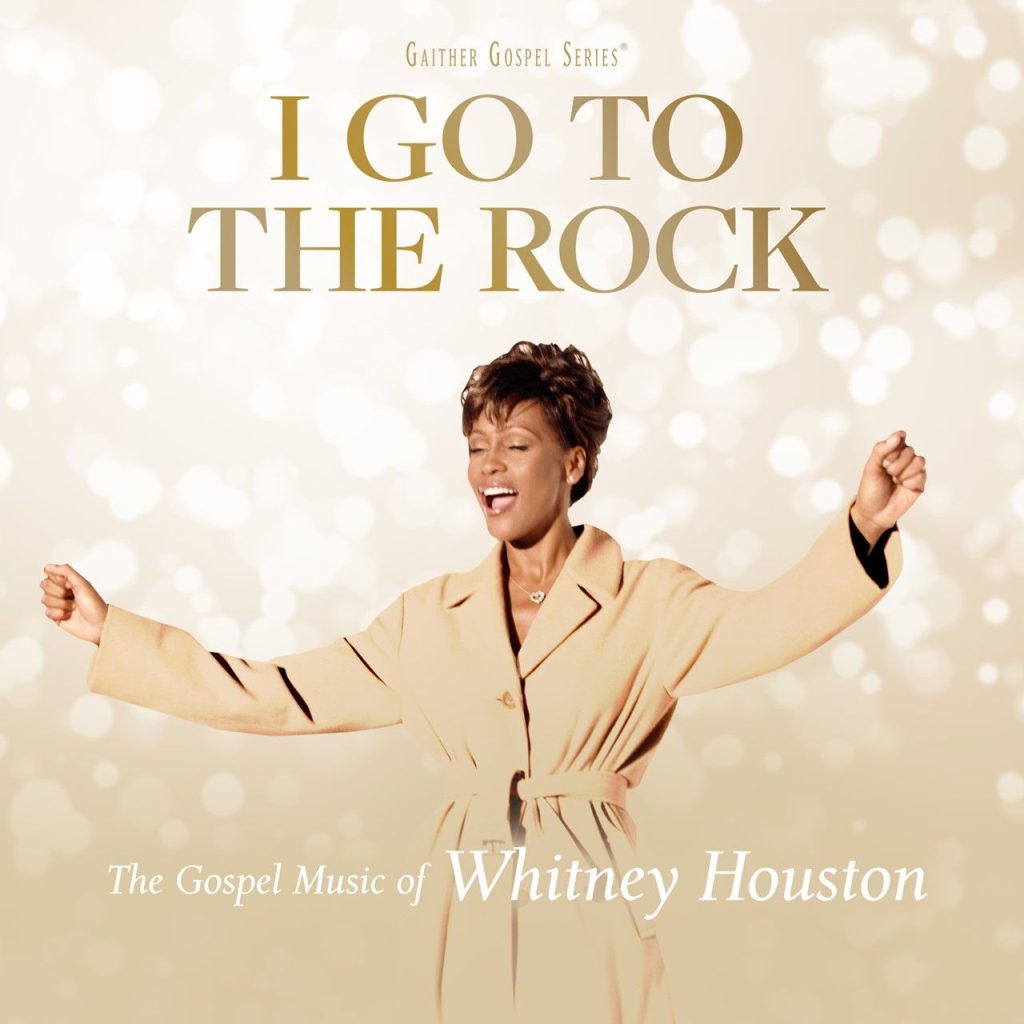
When she finished, “there wasn’t a dry eye in the house,” many recalled.
I Go to the Rock: The Gospel Music of Whitney Houston chronicles the singer’s journey from the junior choir to singing hymns in major motion pictures and large arenas. The fourteen-track album rocketed to the top of Billboard’s Top Gospel Albums chart shortly after its release on March 24.
It’s Whitney’s second trip to the Gospel Album chart and first since 1996, when The Preacher’s Wife motion picture soundtrack hit No. 1 and dominated the list for a half-year. I Go to the Rock is also available on digital platforms, and a companion DVD and TV special round out the collection.
Six never-before-released recordings are among the album’s incandescent selections. There are three rare studio performances including the 1981 “He Can Use Me,” that pull open the curtain on a pre-fame seventeen-year-old Whitney Houston. On the track, also available as a lyric video, Whitney drives home the life-affirming decision of discipleship with gut-wrenching shouts and flowering flights of falsetto. In this performance, you hear both Whitney, who sang congregants happy at New Hope, and the emerging strains of a pop superstar.
To view “He Can Use Me” lyric video, click here.
Even as a pop hit-maker, Whitney held fast to her church roots. She grew up in a gospel-singing family—her mother, her aunts, her uncle, and her cousin were the Drinkard Singers, one of the finest gospel groups in the nation. Before her performances, Whitney sang gospel songs to warm up her voice. She included gospel sets in her stadium-filling appearances. Whether she sang a ballad or a hymn, the church echoed in her voice.
I Go to the Rock also includes “Bridge Over Troubled Water,” a duet with the award-winning (and Whitney documentary host) CeCe Winans performed live at the 1995 VH1 Honors. There are selections from gospel veterans the Georgia Mass Choir and Richard Smallwood. The DVD includes a scene where Whitney, her mother Cissy, and her brother Gary perform together at the 1988 American Music Awards. Their “Wonderful Counselor,” a soul-stirring rearrangement of “For Unto Us a Child is Born” from Handel’s Messiah, earned them a standing ovation. It was the first time gospel music was sung from the stage of the American Music Awards in its then 15-year history. Whitney also won the first of two awards that evening.
In a 1990 interview [with MTV], Whitney said, “My root is gospel. My root is not R&B; my root is gospel music. And gospel is not something that you can categorize. It’s not black, it’s not white; it comes from the soul.”
I Go to the Rock: The Gospel Music of Whitney Houston makes it clear that while Whitney Houston sang to packed arenas around the world, stacked up hit after hit after hit, and became an American icon, she never let go of her faith.